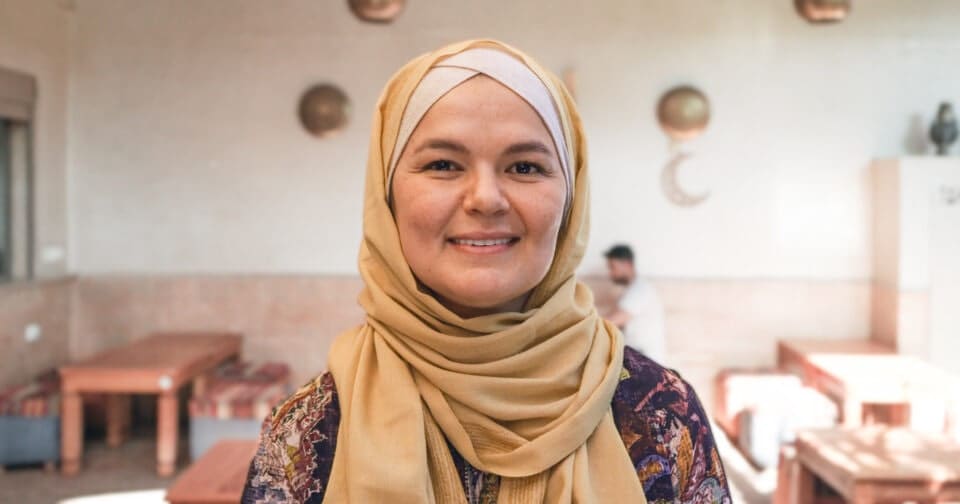
When Nora Fitzgerald Belahcen launched Amal in 2012 it wasn’t with a burning desire to pass on her own cooking skills. Although she could cook, with a background in creative writing she didn’t come from cooking or anything culinary for that matter. “I got into the cooking side as a way to offer women a pathway out of poverty and it started with just two women in a small bakery,” she explains.
“In retrospect the baking was like a pilot project to see how this could work and how cooking and baking could become a viable livelihood for women who are living in extreme difficulty.”
At the end of the launch year she started looking to extend the offer to a few more women, which in turn led her to launching the non-profit project. Fast forward 11 years and there is a 300-strong alumni group of Amal.
She describes Amal as a classic bootstrapping journey. “In the beginning it was just a lot of us volunteering and trying to figure it out,” she says. Over time, as they have grown used to running the project, they have hired a chef to oversee and organize the all women run kitchen.
Belahcen was born in Morocco and raised by her American parents who emigrated from the US to Morocco in the 1970s. “My parents were seeking a different type of life, more grounded in spiritual values,” she says, adding that she is inspired by her parents’ immigrant journey of hard work in a new country.
Experts in living in scarcity
Amal has a restaurant but at the core this is a social mission offering training in the culinary arts to women from disadvantaged background.
Moroccan women rarely make it into the labor market – just 25% of them work in a formal capacity. Belahcen recalls a woman who was part the project in the early days who had worked her whole life since the age of 10 but had no money to show for it due to the very low wages.
“Then think about all the invisible labor that women do that is unvalued, unaccounted for and unpaid; these women want to be acknowledged and honored,” she says. “I don’t see them as victims waiting to be saved but as genuine experts in living in scarcity. There’s a beautiful teaching in Morocco of wanting for your fellow humans as good as what you have yourself.”
The program quickly gained traction – by 2016 they would receive 100 applications for the 15 places. The popularity gave rise to a catering services arm that complements the restaurant. “We cater for anything from a coffee break for 20m people to a four-course meal for 100 people,” she says.
Amal today is run across a couple of locations; the restaurant is open to the public and staff and students work together in the kitchen, each trainer shadowed by a student.
At any given moment there will be 30 women training; in addition to the practical work in the restaurant, they receive classroom training, including hygiene, safety, and culinary art theory.
Each student undergoes a course that lasts the academic year at the end of which the aim is to get them a job in a restaurant. ”Eachlittle job placement is a celebration for us,” says Belahcen.
The ultimate ambition, she says, is to grow the type and quality of support that Amal offers to women. “I think sometimes we love this idea that poor people work their way out of poverty. But I think it’s doesn’t consider all the other factors that are they’re constantly fighting against, all of the insecurity – in housing, health, transportation,” she says. “For them to get to a point where they can even start to work their way out of poverty takes a lot of support.” The nuanced picture means that a potential future Amal project could be a shelter for women.
Regardless of the future direction, the 300 Amal alumni will play a big part in propelling the movement for change.
“All of these women have gone through the program, they have lived and absorbed and embodied the spirit of what we’re doing, and they want to continue to participate. We have women who want to start their own restaurants and their own food businesses,” she says.
Rather than replicating Amal, Belahcen prefers to look to these people who, like a snowball effect, can open their own business, employ another five or 10 people and keep the spirit alive.
Tina Nielsen

